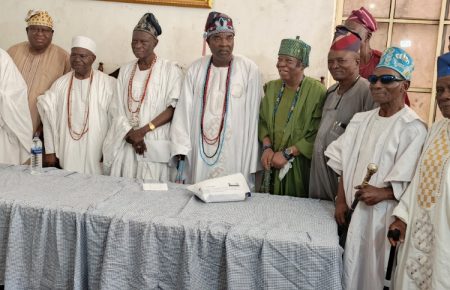The proliferation of affordable smartphones, encrypted messaging apps, and mobile payment systems has profoundly impacted Nigeria’s underground sex industry, migrating a significant portion of the trade from traditional physical spaces like street corners and brothels to the digital realm. Platforms like X (formerly Twitter) and Telegram provide sex workers and traffickers with new tools to advertise their services, conduct transactions, and operate with greater discretion. This technological shift, while offering certain advantages to those involved, also presents significant challenges for law enforcement and raises serious concerns regarding exploitation and public safety. The legal landscape surrounding sex work in Nigeria is complex and often contradictory. While the Nigerian Constitution doesn’t explicitly criminalize prostitution, the frequent arrests and harassment of sex workers create an environment where the trade is perceived and treated as illegal in practice, particularly in southern Nigeria. In the north, however, the Penal Code, especially within states adhering to Sharia Law, explicitly prohibits prostitution. This legal ambiguity further complicates efforts to regulate and monitor the industry, leaving sex workers vulnerable to exploitation and abuse.
The digital transformation of the sex industry has dramatically altered how sex services are marketed, arranged, and delivered in Nigeria. Both consensual adult sex work and exploitative/illegal activities, such as trafficking and the production of child sexual abuse material, increasingly occur online. This convergence of legal and illegal activities online blurs the lines and makes it more difficult to distinguish between them, creating a significant challenge for law enforcement and increasing the risk of harm, particularly for vulnerable individuals like teenagers who are increasingly exposed to this online environment. The anonymity and accessibility afforded by digital platforms can facilitate exploitation and make it harder to identify and protect victims. Furthermore, the use of encrypted messaging apps can hinder investigations and prosecutions, allowing perpetrators to operate with relative impunity. This necessitates innovative approaches to law enforcement and online safety measures to mitigate these risks.
The story of Ngozi, a woman in her late 30s, illustrates the complex realities of the digital sex trade in Nigeria. An aspiring designer with a National Diploma, Ngozi’s dreams were derailed by financial hardship, leading her into the world of online sex work, often referred to as “hookup,” as a means of survival. What began as a temporary solution became a long-term reality, exposing her to the inherent dangers and vulnerabilities of the industry. Ngozi’s experiences underscore the economic pressures that can drive individuals into sex work and the lack of alternative opportunities for those facing financial difficulty. Her story also highlights the risks involved, including the potential for encountering dangerous individuals and the psychological toll of navigating a stigmatized and often precarious profession.
Ngozi’s initial foray into the digital sex trade began on Facebook, illustrating the pervasiveness of social media platforms in facilitating this type of activity. Over time, she diversified her methods of finding clients, highlighting the dynamic and adaptable nature of the online sex industry. Her narrative includes a chilling encounter with a man she believes intended to use her for ritualistic purposes, underscoring the very real dangers that sex workers face, particularly in a largely unregulated online environment. This incident emphasizes the vulnerability of individuals operating within this space and the potential for exploitation and violence. It also points to the limitations of existing safeguards and the need for greater protection for those involved in the online sex trade.
Ngozi’s identification as bisexual and her preference for female clients adds another layer of complexity to her story. Her statement, “They understand pain better,” suggests a sense of shared experience and empathy among women in the industry, possibly reflecting the unique challenges and stigmas faced by women in sex work. This also highlights the diversity within the sex worker community and the importance of understanding the specific needs and experiences of different groups within this population. It is crucial to avoid generalizations and recognize the individual circumstances and motivations that lead people to engage in sex work.
The intersection of technology and the sex industry in Nigeria presents a complex and evolving landscape. While technology offers new opportunities and avenues for sex workers, it also exacerbates existing challenges and creates new risks. The anonymity and reach of online platforms can empower sex workers by providing greater control and discretion, but they also increase the potential for exploitation, abuse, and trafficking. The legal ambiguities surrounding sex work in Nigeria further complicate matters, making it difficult to regulate the industry effectively and protect vulnerable individuals. Addressing these challenges requires a multi-pronged approach involving law enforcement, technology companies, and community organizations. It is crucial to develop strategies that prioritize the safety and well-being of sex workers while also combating trafficking and exploitation. Furthermore, fostering open and honest conversations about sex work, free from stigma and judgment, is essential to understanding and addressing the complex realities of this often-hidden industry.














